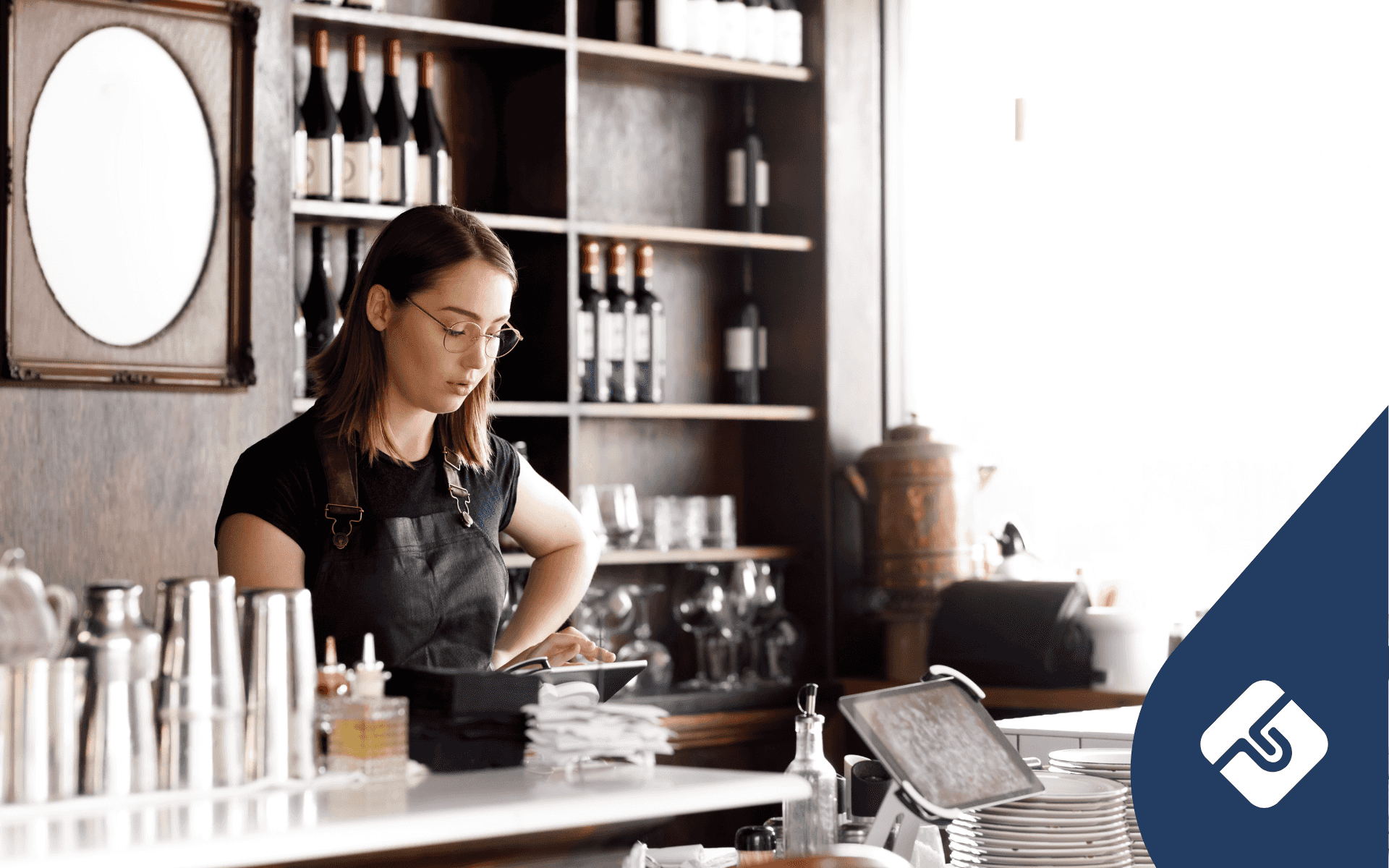Navigating the tax landscape as a cafe or hospitality worker doesn’t have to be overwhelming. The last thing on your mind might be figuring out what you can deduct on your tax return. But here’s the good news: there are plenty of deductions available that can put some money back in your pocket. Understanding these deductions isn’t just about saving a few dollars—it’s about ensuring you’re getting every benefit you’re entitled to.
But is it easier said than done? Here’s the truth: With a bit of knowledge and preparation, you can make tax season work in your favour by taking advantage of the deductions available to you.
Whether you’re a barista perfecting that perfect foam heart, a chef slicing your way through a busy dinner service, or even a cafe owner juggling countless responsibilities, there are plenty of ways to lighten your tax liability.
Let’s break down some of the key deductions you can claim to ensure you’re getting the most out of your hard-earned money.
Common tax deductions for cafe and hospitality workers
In the fast-paced world of cafes and hospitality, it’s easy to overlook potential tax savings. However, your job comes with a range of deductible expenses that can significantly reduce your taxable income. From uniforms to travel costs, let’s uncover the key deductions that could put more money back in your pocket this tax season.
- Tools and Equipment: The tools that are essential for your daily work can be claimed as tax deductions. If you’re a chef, your knives, sharpening tools, and other kitchen essentials can be deductibles. Baristas can deduct expenses for specific cleaning supplies necessary to keep the coffee machines running smoothly.
Whether you’re buying new equipment or just repairing old tools, these costs are deductible. Just keep in mind that if an item costs over $300, you’ll need to claim it over time through depreciation rather than all at once.
- Work-Related Training and Education: Investing in your skills and knowledge is not only beneficial for your career but also for your tax return. You can claim deductions for work-related training and education expenses, such as courses that enhance your current skills or certifications like a Responsible Service of Alcohol (RSA) certificate. For example, if you attend a specialty cooking course to improve your skills as a chef, the course fees, along with travel expenses to and from the course, can be claimed.
However, remember that the education must directly relate to your current role, not to obtaining a new job. Requirements for the Responsible Service of Alcohol certificate might differ from state to state. Specific information is listed by the governments of New South Wales, Victoria, Tasmania, Queensland, Western Australia and South Australia on their websites.
- Travel and Vehicle Expenses: Travel expenses can also be a significant deduction for hospitality workers, especially if your job requires you to travel between different work sites or attend work-related events. For example, if you work at multiple cafe locations or need to pick up supplies for your restaurant, you can claim the cost of using your vehicle.
This includes parking fees, tolls, and public transport costs. Keeping a detailed record of your travel, such as a logbook for kilometres driven for work purposes, is essential to substantiate these claims.
- Home Office Expenses: In today’s flexible work environment, many cafe and hospitality workers may find themselves doing some work from home, whether it’s planning menus, managing schedules, or handling administrative tasks. If you use part of your home for work-related activities, you may be eligible to claim home office expenses. You can calculate your home office claims here. These can include a portion of your internet costs, utility bills, and depreciation of office equipment. To claim these expenses, you must have a dedicated workspace and keep a detailed record of the time spent working from home.
- Work Related Attire: If your job requires you to wear specific attire, like a branded apron, chef’s hat, or protective gear such as gloves and non-slip shoes, you’re in luck—these costs are considered a deductible. This means you can claim expenses for purchasing, repairing, and even cleaning these items.
For example, if you’re a barista required to wear a branded shirt, you can deduct the cost of buying and laundering that shirt. Just remember, the deduction applies only to clothing that’s distinctive to your job or serves a protective function. Your everyday clothes, even if you only wear them to work, won’t qualify for this deduction.
Specific deductions for Restaurant and Cafe Owners
Running a cafe or restaurant comes with its own set of challenges, but the good news is that it also opens up some unique tax benefits. If you own a cafe or restaurant, you have access to a range of unique tax deductions that can significantly reduce your taxable income. Here’s a closer look at what you can claim:
- Business Operating Expenses: Running a cafe or restaurant involves a lot of operating costs, and fortunately, most of these can be deducted. This includes rent for your business premises, utility bills, and the cost of supplies like ingredients and packaging materials.
For example, the monthly rent you pay for your restaurant space is fully deductible, as are the electricity and gas bills that keep your kitchen humming. Even smaller expenses like cleaning supplies and business insurance can be deducted, helping to reduce your overall tax burden.
- Employee Expenses: As a business owner, you’re responsible for covering your employees’ wages, superannuation contributions, and any training costs—and these are all tax-deductible.
For instance, if you invest in staff training, like a food safety course or a barista skills workshop, the associated costs can be claimed. Additionally, superannuation contributions you make on behalf of your employees are also deductible, making it easier to manage these mandatory payments.
- Depreciation of Assets: Cafe and restaurant owners often invest in significant assets like coffee machines, ovens, and refrigerators. The cost of these assets can be deducted over time through depreciation.
For example, if you purchase a commercial-grade coffee machine, you can claim a portion of its cost each year as it depreciates. This deduction helps offset the expense of maintaining high-quality equipment essential for your business operations.
- Marketing and Advertising Costs: Marketing and advertising are crucial for attracting and retaining customers in the competitive hospitality industry. Fortunately, these costs are fully deductible. Whether you’re running social media ads, printing flyers, or hosting promotional events, you can claim the associated expenses.
For example, the money spent on a Facebook ad campaign promoting your cafe’s new menu items can be deducted from your taxable income, helping to lower your overall tax bill.
Record-Keeping tips for maximising deductions
Keeping track of your expenses might not be the most exciting part of your job, but it’s essential for making sure you claim everything you’re entitled to. Here are some easy ways to stay organised and make tax time a breeze:
- Maintaining Receipts: Always keep all receipts for deductible expenses. This includes physical receipts for small purchases and digital copies for larger transactions. For example, if you buy new uniforms for your staff, you should keep the receipt as proof of the expense. Organising these receipts by category or date can make tax time much smoother while you are doing your taxes.
- Using Tax Software: Consider using a tax software or app to track your expenses throughout the year. These tools can simplify the record-keeping process, automatically categorising expenses and storing digital receipts.
- Consulting a Tax Professional: While keeping records and using software can be helpful, consulting a tax professional can save you time and stress. A tax expert can guide you through the nuances of the tax code, ensuring that you claim every deduction you’re entitled to. They can also help you avoid common mistakes that could lead to an audit or penalties.
Final thoughts
Maximising your tax deductions as a cafe or hospitality worker doesn’t have to be overwhelming. By staying informed and taking advantage of available deductions, you can lighten your tax burden and keep more of your hard-earned money.
Remember, keeping good records and knowing what you can and can’t claim is key to ensuring smooth tax filings. If you ever feel unsure, or want to ensure your business tax compliance is on track, seeking advice from a tax professional can make all the difference. They can guide you through the rules and help you avoid common pitfalls.
Looking for cost-effective tax and compliance solutions for your business? Explore our offerings and see how we can assist you in navigating the complexities of tax season. Take control of your tax season with confidence and ensure you’re claiming everything you’re entitled to!
FAQ
- Can I claim meals as a deduction if I work in a cafe?
No, meals consumed during your normal workday are not deductible, even if your employer provides an allowance for them.
- Can I claim the cost of attending a hospitality conference?
Yes, you can claim the cost of attending a hospitality conference if it directly relates to your current role and enhances your work skills.
- Is the cost of a new laptop deductible if I use it for work?
Yes, you can claim the cost of a new laptop if it’s used for work-related tasks. If the cost exceeds $300, you’ll need to claim it over time through depreciation.







